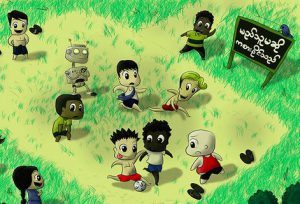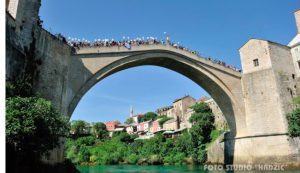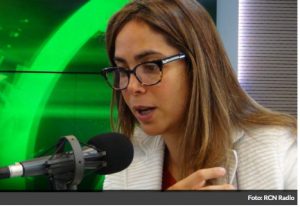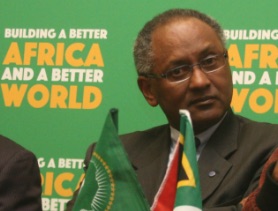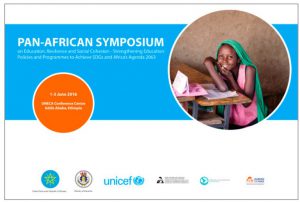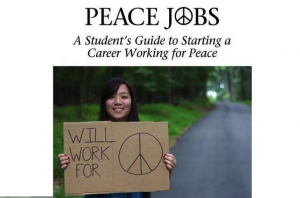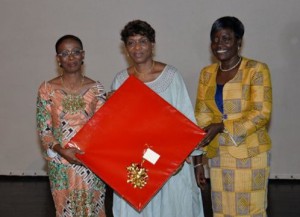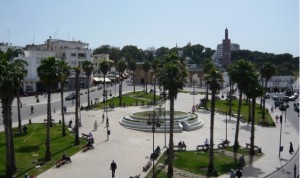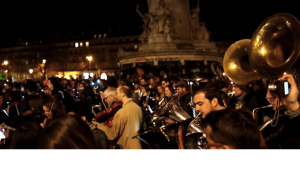EDUCATION FOR PEACE .
An article compiled by Elizabeth Kessler for the Mennonite Central Committee
Our Global Family education program supports nine projects that focus on peace education. Students learn about diversity, forgiveness and the skills they need to mediate conflicts between their peers. These programs are all located in places that have a history of violent conflict, and our local partners believe that the children who learn nonviolence have the potential to grow to be leaders of change.
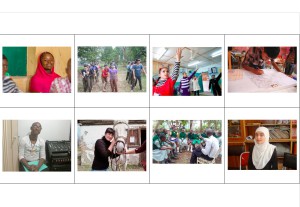
Click on photos to enlarge
Photo credits (left to right): Dave Klassen, Khamsa Homsombath, Ryan Rodrick Beiler, Majeda Al Saqqa, Edupaz, Sezam, Grassroots Development Initiative, Help the Afghan Children
Nigeria
Patrick Asuquo Effiwatt is the head boy at Township Primary school in Plateau State, Nigeria. He is also one of the student leaders in the school’s Peace Club, which was set up by our partner Emergency Preparedness Response Teams (EPRT). EPRT is working to start 50 new peace clubs in secondary schools across the state.
Each club brings students together to learn how to resolve conflict between their peers. “I have been part of the Peace Club for two years now, and it has impacted my life greatly,” testifies Patrick. “Conflict is a given. But there are ways to settle differences that lead to forgiveness and nonviolence. I want to be part of those solutions.”
Caroline Emmanuel told us, “I once mediated between my grandmother and my aunt when a serious disagreement erupted.” She’s a member of the Mangu Hale school Peace Club, one of the clubs set up by EPRT. The members of the club have been praised by the school’s parent committee for the positive impact they have had on the school.
Laos
These kids are learning about trust through a teambuilding activity at a peacebuilding summer camp organized by Mittapab (Friendship), a group of educators and young adults who teach peace skills to their peers in Vientiane, Laos. Global Family provides resources for workshops, internships and the peacebuilding summer camp.
Sunsany Khodphoutone, the leader in the red shirt, has been a volunteer since 2011.
“I take my role as a peacebuilder seriously,” he says. “Sometimes I am so excited about what I have learned that I can’t help but teach everyone I come into contact with…. I really love what Mittapab is doing—more than my study subject at college. I will continue to improve myself to be a good leader and peacebuilder for the future of Laos.”
Gaza
Suheil Arandas (age 10, in the red shirt) participates in a dance class at Shoroq wa-Amal. Shoroq wa-Amal means “Sunshine and Hope”, and is a program for refugee children at the Khan Younis refugee camp in Gaza. The Culture and Free Thought Association (CFTA), a Global Family partner, is providing leadership training and healthy outlets for expression for the children, many of whom have lost loved ones to violence. The CFTA believes that trauma healing is an important building block for a future of peace in Palestine and Israel. Global Family provides stipends for counsellors to meet with the students.
Ahmed Zokmatt, another student at Shoroq wa-Amal, draws a crowd of children protesting for their right to feel safe.
Ahmed was devastated by the death of his cousin, who was killed in an Israeli air strike during the 2014 Israel-Hamas conflict. “He was a dear friend of mine,” he says. “When I knew Ibrahim was coming to visit I could not sleep from happiness. We would laugh, eat, play and he would sleep next to me. I am in disbelief that I will never see him again.”
(Article continued in right column)
Question for this article:
Can peace be guaranteed through nonviolent means?
(Article continued from left column)
While at Shoroq wa-Amal, Ahmed expresses his feelings through drawing and painting.
“I want to tell the world that children in Gaza have the right to play, smile, be happy and feel safe and secure,” Ahmed said.
Colombia
Luis Esteban Estupiñan Mosquera teaches English and physical education in Cali, Colombia. He has been a teacher for 14 years, but came to a new school in 2014 where MCC partner Edupaz has been working to teach students, teachers and parents how to mediate conflicts.
At the schools where he taught before, Luis says the teachers didn’t know how to handle conflict, and used “punitive methods” with the students. Many of the students come from families that fled violence in rural Colombia during the decades-long civil war, and still experience the effects of street violence and domestic violence.
Coming to this new school changed things for Luis. “The fact that this school is teaching alternatives to managing conflict has changed a lot in my performance as a teacher and in my personal life,” he says. “I have now learned how to teach my students to avoid conflict. This is wonderful!”
Bosnia and Herzegovina
Dženaida Dizdarevic Subašic is a teacher and participant of Education for the Future, a Global Family-supported program in Bosnia and Herzegovina that trains primary school teachers in modelling tolerance and acceptance of differences.
Neighbouring communities in Bosnia and Herzegovina are ethnically divided, and children go to separate religious schools. By promoting trauma healing, peacebuilding and reconciliation, teachers can have a positive impact on how Christians and Muslims coexist.
Dženaida was skeptical about the training at first, but she now teaches nonviolent communication to her students. “Skills learned in nonviolence workshops also help students have better relationships and more respect in dealing with each other,” she says.
Kenya
This photo was taken at Rae Kanyika Primary School in Kisumu, Kenya. Christopher Omondi, on the right, is conducting a session on leadership with the Student Leaders Council of the school. Christopher is a volunteer with Grassroots Development Initiative (GDI), a local organization in Kisumu that works to promote peaceful environments in schools.
In April 2016, GDI will become one of Global Family’s newest partners. Global Family will provide funding to train teachers in restorative discipline as an alternative to corporal punishment. GDI will also train teachers in conflict resolution and confronting gender discrimination.
Afghanistan
Atifa is a grade seven student in Paghman District, Kabul Province, Afghanistan. She is proud to have been able to settle disputes between her classmates ever since taking a peace education course offered by Help the Afghan Children, a Global Family partner.
Help the Afghan Children (HTAC) works in 15 schools in Paghman District, offering peace education as well as computer classes with support from Global Family. While it is usually difficult to directly measure the impact of peace education, we know that aggressive conflicts between students in Paghman District dropped by 63% between 2011 and 2013, and two-thirds of students were seen to be modelling the behaviour taught in HTAC classes.
